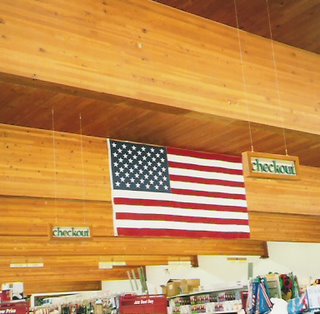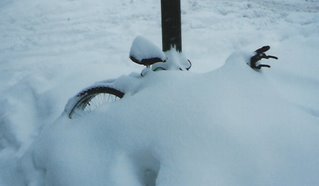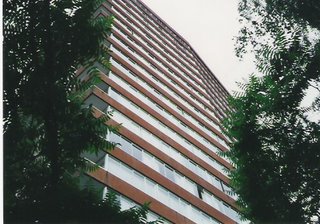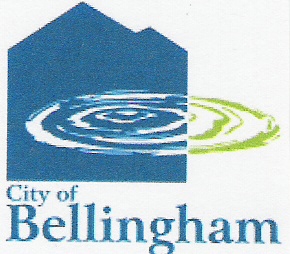Scroll down for funny sign.
As the pace of the corporate workplace gets faster and meaner, more and more talk of downshifting appears. Life in the slow lane is taking on a greater appeal.
Well, I have lived all my career in the slow lane. Basically, I was never qualified to be in the rat race.
The deadly rat race didn't accept my application!
First I was idling through school. Not doing great, but not doing bad either.
Nearing graduation, I realized that a BA in Geography wasn't a big deal. Many go on to graduate school, but I decided to try the work world for the first time.
Realizing that job experience is important, I decided to start out with what I could qualify for; being a janitor.
The city of Bellingham, where I graduated, has a very competitive job market for professionals. People moving here from all over USA with many years of experience and advanced degrees. They just take what they can find.
This is a place where your waiter will likely to have a masters degree in library science, or something.
I applied for a few "full time" custodial positions and only found "part time" work. It was in a restaurant named Pizza Haven. A custodial position that was actually kind of fun. The boss was sort of a clown. Pleasant to be around.
All my meager bills were paid. In all my working career, I've never even had to collect unemployment!
Around the time I found that part time job, I also found an upstairs neighbor who talked about the virtues of "job sharing."
Part time work. The great balance between being a bum and working to death.
She was a tired secretary who had been in the high pressure world and was mostly burned out.
Was looking for a healthier balance.
She convinced me that my part time schedule was okay.
I had that balance.
Didn't need much money to live on, so the bills were paid, but I also had time.
Lots of free time.
That is when I really got into bicycle touring.
Working part time, I had many free afternoons when I could ride out Mount Baker Highway. Discovered I could go all the way to Heather Meadows and back after my short morning shift. See below.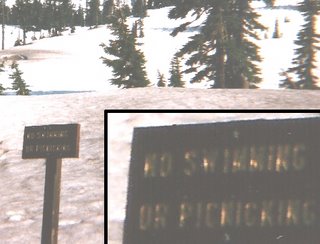
Sign near heather meadows says "no swimming or picnicking." Duh, a frozen lake. Sign was there for the 2 or three months per year that the lake thawed. Lake is at Heather Meadows near Mount Baker. Sign no longer exists, last I knew. Picture didn't turn out that well, but a bit of editing helps.
Continued...I worked 7 days per week, but some days were only a 2 1/2 hour shift. Other days were closer to 6 hours, but total for the week was seldom over 30 hours.
I applied for full time work a few more times, but even for custodian, the competition was fierce. People with years of experience, training and preference points for veterans got hired. The university, school district and city put you into large cues behind several hundred applicants for only a handful of openings. Other places, in town, tended to be just part time retail outlets.
Still, I was enjoying part time, so I didn't bother applying for more work after a while.
Not only did I get into cycling, I also got into the various art and correspondence projects that eventually lead to this web page.
Eventually, I did worry about not having health insurance, but I was healthy.
Some folks are made sick by the high stress job that they feel they must take, in order to have health insurance.
What a catch 22.
Anyway, that part time job lasted 11 years; just about till the restaurant went out of business. My health outlasted the health of the business.
Before the restaurant closed, I was offered the full time position I have now.
I am on the custodial crew of a YMCA just an easy walk from where I live.
Even has a health plan and a retirement fund.
Still low stress and practically no commute time. It's full time, but a good and fairly laid back environment. Also lots of vacation time. Even the ability to arrange leave of absence, which is good for bike touring.
So my life has always been down sized.
Still, except for some retirement and savings, I have no equity.
No home ownership.
Even when starter houses cost less than a quarter million, I never made enough to qualify for monthly mortgage payments.
Now there are quite a few "homeowners turned millionaires" moving to this area. It's even fueling the local economy as folks can now live off their home equity for many years. This means there is still spending, which props up local retailing even though there doesn't seem to be much local industry.
Luckily there are still affordable rental units around town. A building boom is leading to fairly high vacancy rates.
The little room I live in is much cheaper than most Bellingham units for sure.
This city is becoming a retirement haven.
Our economy equals:
"Go to school, then retire."
How's that for the "work ethic?"
I've been partially retired for years.
One room and no car. No kids, no pets. A bicycle and a computer; that's about all I have.
Who needs more?
People moving here are now seeking what I must have had all along. Still many of them are trying to live in the big homes.
Some end up having to sell and move out when they realize that their home might be their only income source.
It's down sizing and I have been there all along.
